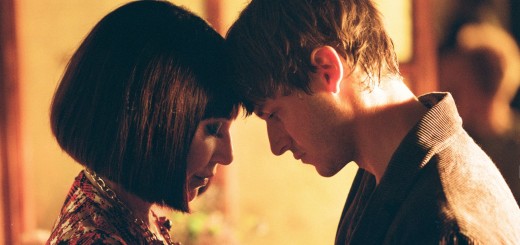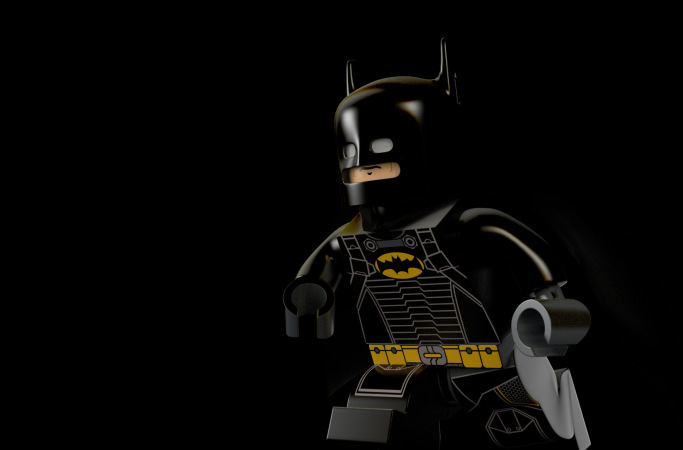Macbeth: A Shakespeare Nerd’s Dream
Making a decent Shakespeare adaptation for the cinema can in many ways be harder than putting a production on stage. Film is not the medium the plays are made for. There’s no audience the soliloquies can be addressed to. Scenes that work as comic relief in a tragedy don’t necessarily fit with the tone of a movie. Even if the actors’ performances are stellar, Shakespeare on film can sometimes feel uninspired and more often than not it’s because the films seem to have been made with a stage rather than a screen in mind.
Luckily, Justin Kurzel’s Macbeth is a rare case where innovative filmmaking comes together with a fresh interpretation of the play and great performances as the cherry on a Shakespeare nerd’s cake.
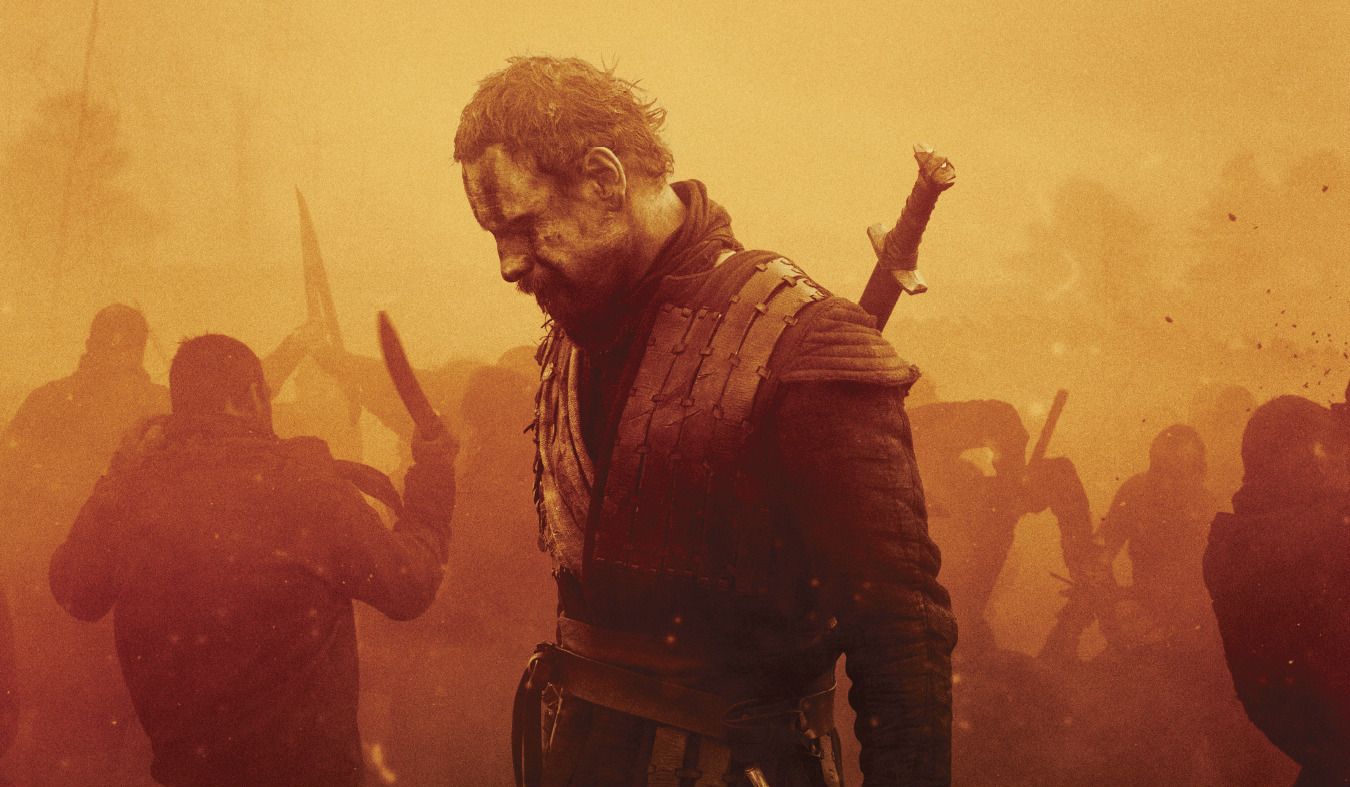
Michael Fassbender is Macbeth (Copyright: Studio Canal Deutschland)
Spoilers for a 500 hundred year old play: as three (and in this case a half) witches prophesy, Macbeth becomes the Thane of Cawdor after winning a crucial battle for King Duncan. Seeing some more potential there, Lady Macbeth persuades her husband to kill the king to rule Scotland himself. To put it mildly, it doesn’t do wonders for Macbeth’s mental health and a group of rebels wants to take the crown back shortly afterwards.
The best part about this version of Macbeth is how visual it is. Battle scenes tinged in blue fog, a beautifully lit coronation scene and a brilliant take on Birnam Wood coming to Dunsinane Hill are just the tip of the iceberg of images I would gladly put on my living-room wall as panoramic posters. Kurzel uses the Scottish landscape so well that it is no surprise that VisitScotland is using the movie to advertise historical as well as shooting locations.
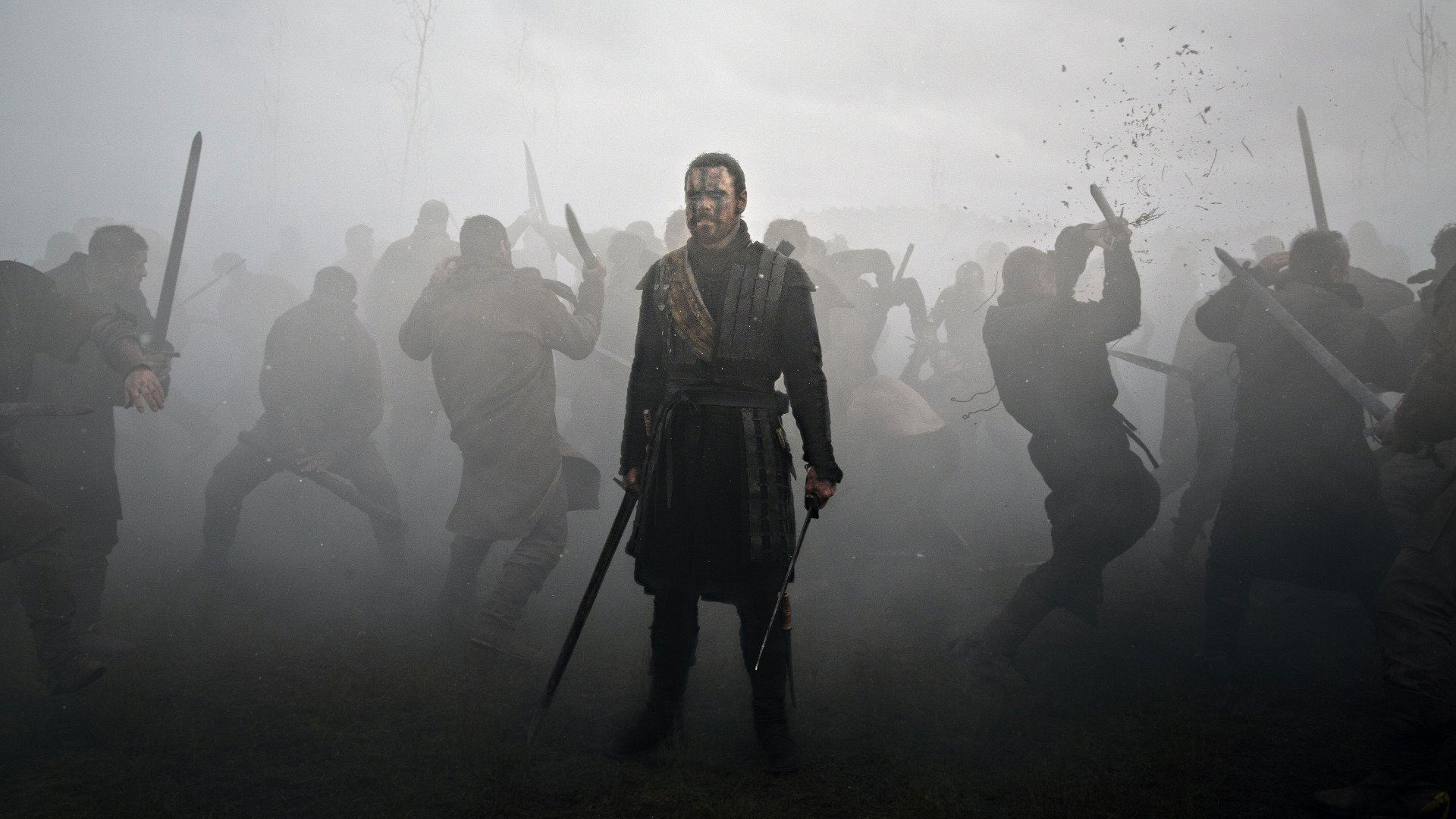
Stunning scenery is key for this Shakespeare interpretation (Copyright: Studio Canal Deutschland)
But the film is not just a spectacle to look at, its visual language stands in for a lot of cut dialogue, adding tension to many scenes. Lady Macduff talking to her son about traitors is now a chase through the forest. The Macbeths’ scheming is intercut with a feast for King Duncan and soliloquies are often addressed at various hallucinations, finally presenting an alternative to voice-overs and actors looking directly into the camera. The changes and adjustments Kurzel makes are almost exclusively things you could not do on stage.
The text of the play is cut down to its absolute core. While iconic elements like the porter scene (arguably the origin of the knock knock joke) are missing, the focus shifts even more towards Macbeth and Lady Macbeth, a challenge Michael Fassbender and Marion Cotillard are more than up to. Their performances are understated and without pomp, evoking pity even after almost two hours of murder and mayhem.
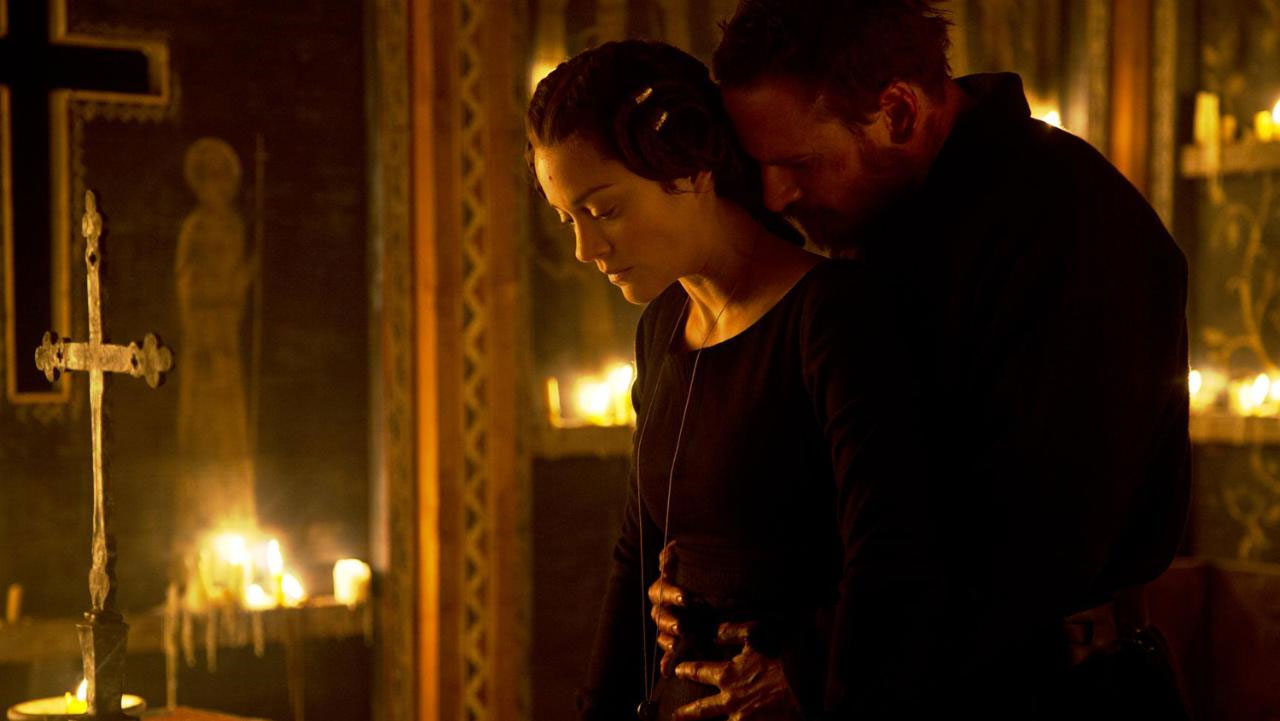
Watch out for those two (Copyright: Studio Canal Deutschland)
The downside to all of these positive aspects is that it makes the film very hard to understand at times. Except for an intertitle that looks weirdly misplaced at the beginning, the movie is not very up-front when it comes to the narrative information it provides, which largely comes from the cuts in the text. On top of that, there is a lot of whispering that comes with the more subtle delivery of the lines, which makes the text that is there quite hard to hear.
In other words, if you come to the cinema knowing what Macbeth is about, this film is an absolute blast, lean back and enjoy. Without background knowledge, it is still beautiful to look at but trying to understand it can become as frustrating as being the king of Scotland.
- Macbeth: A Shakespeare Nerd’s Dream - Oktober 28, 2015
- Patreon: Der seltsame Fall der freiwilligen Unterstützung - Mai 31, 2015

